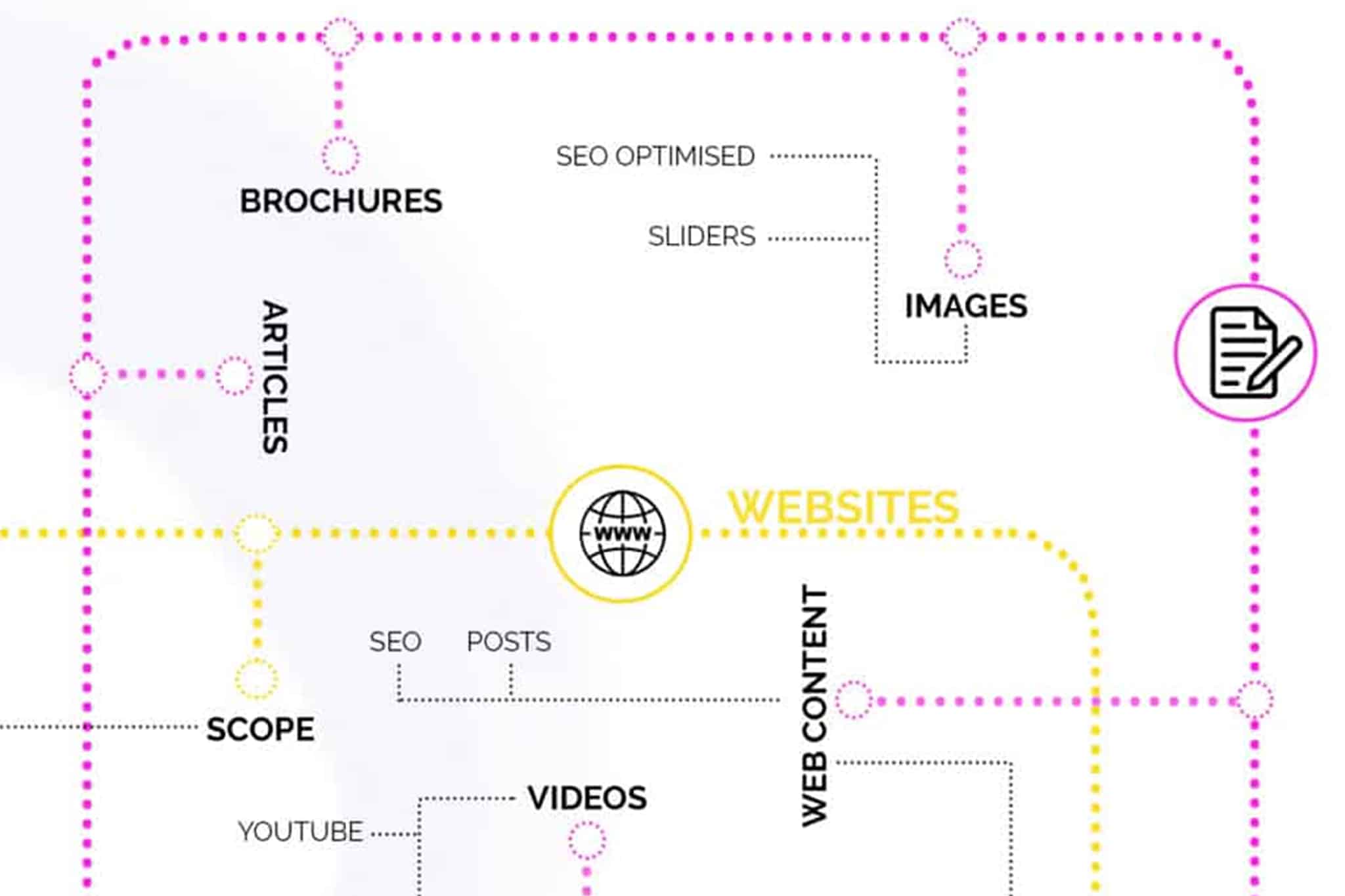Maximise Your Marketing Budget
A marketing budget is a financial plan that outlines the resources (money, time, and personnel) a business will allocate towards promoting and advertising its products or services. The budget is typically created on an annual basis and is used to plan and track the effectiveness of marketing campaigns.
There are several factors that influence the size and allocation of a marketing budget. These include the overall financial health of the business, the size and growth goals of the company, and the competitive landscape in which the business operates.
When creating a marketing budget, businesses must consider the costs associated with different marketing activities such as advertising, promotions, public relations, market research, and events. They must also consider the potential return on investment (ROI) of each activity and allocate resources accordingly.
It’s important to note that a marketing budget is not set in stone and can be adjusted as needed throughout the year. Businesses should regularly review and analyse their marketing efforts to ensure they are achieving their desired results and make adjustments accordingly.
In summary, a marketing budget is a critical tool that helps businesses plan and track the effectiveness of their marketing campaigns. It is based on the overall financial health of the business, the size and growth goals of the company, and the competitive landscape. Businesses should regularly review and adjust their budget as needed.
Are Your Customers Revolting
What is changing in the way customers behave?
- Customer expectations are rising, this will impact on your marketing activities and this will have an impact on your marketing budget. Now this could be that over time customers have become more demanding or it could be because as customers experience better customer service in certain sectors they now have higher expectations on all transactions.
- Customers want it when they want it. Research identifies that the amount of time we are prepared to queue have on average gone down to 2 minutes (compared to 5 minutes 6 years ago). Patience runs out after 10 seconds on waiting for a web page to load
- Customers don’t believe the hype. Ipsos Mori research has identified that consumers are largely cynical of advertising claims with nearly half (48 per cent) of those surveyed stating that they only trusted advertising claims ‘some of the time’. Interestingly four in 10 (38 per cent) identified that they ‘never’ or ‘seldom’ trusted advertising.
- Customers are becoming experts. With the development of mobile technology and access to the internet there is a world of information available to customers.
- Customers are talking and listening more. Social media has provided numerous opportunities for commenting and feedback. Applications like Trip Advisor are now common tools for consumers to use in the selection of holidays and restaurants
The challenge is that we have now got to work harder to build customer trust and ultimately create delighted and devoted customers.
So how will this impact your marketing budget
For the majority of businesses the new financial year is now here. This provides the opportunity to implement new budgets and new targets for sales growth. In this article we will look at
- How much should you spend
- Setting a budget
- What’s working for others
- What’s really important
How much should you spend on marketing?
One of the most common questions we get asked is “How much should we spend on marketing?” or “is there a formula that we can use to calculate the amount we spend on marketing?” Unfortunately the simple answer is “It depends!!” there is no magic number i.e. as a manufacturer with a turnover of £5 million spend £50,000 on marketing is something that just doesn’t hold true.
All companies are unique and therefore having a ratio isn’t going to work. What’s right for your business will depend on your individual business, your strategy and your business objectives.
Setting a marketing budget.
Information from ALF Insight (2021 survey of 2000 UK marketers working in house and agency side) indicates that over 30% of companies spend less than 2% on marketing as a percentage of revenue.
| Marketing budget as % of Revenue | Percentage |
| <2% | 31% |
| 2.1 – 5% | 27% |
| 5.1 – 8% | 12% |
| 8.1 – 10% | 15% |
| 10.1 – 14% | 8% |
| >14% | 6% |
Factors affecting marketing budgets
Marketing budgets have changed over time due to a variety of factors, including changes in technology, consumer behaviour, and overall economic conditions. In the past, traditional forms of advertising, such as television and print ads, were the primary ways companies allocated their marketing budgets.
However, as digital media and social media have become more prevalent, companies have shifted more of their budgets to online and social media advertising. Additionally, as consumers have become more sceptical of traditional advertising, companies have also increased their budgets for content marketing and influencer marketing.
Overall, marketing budgets have become more diversified and increasingly focused on digital channels.
Digital marketing budgets have changed over time as new digital marketing channels and technologies have emerged. Some examples include:
- In the early days of the internet, companies primarily allocated their digital marketing budgets to website design and development. However, as social media platforms have gained popularity, more and more companies have shifted their budgets to social media advertising and management.
- Search engine optimisation (SEO) and pay-per-click (PPC) advertising have also become increasingly important for companies looking to drive traffic to their websites. As a result, many companies have increased their digital marketing budgets for SEO and PPC.
- As mobile usage has grown, companies have also shifted more of their digital marketing budgets to mobile-optimised websites and mobile advertising.
- As video marketing has become more popular, many companies have increased their digital marketing budgets for video production and promotion.
- As the usage of virtual and augmented reality technology has grown, it has also become a more important area for companies to invest in, not just for gaming but also for ecommerce, real-estate, education, and many other industries.
- With the increasing use of artificial intelligence and machine learning, companies are also investing more in these technologies to improve their marketing campaigns, such as chatbots and recommendation systems.
These are just a few examples, but the way digital marketing budgets change over time is a continuous process, as new technologies, platforms and trends emerge.
Whats working for others?
There is no one marketing silver bullet. The table below shows the marketing and advertising channels that businesses were going to be investing in next year. Hopefully this indicates that they have been closely measuring the performance and establishing the effectiveness of the various tactics they utilise.
| Type of Marketing (Will invest in next year) | Percentage % |
| Email marketing | 76 |
| Website | 71 |
| Social Media | 63 |
| Event | 56 |
| Print, Press and PR | 50 |
| Content | 48 |
| SEO / PPC | 45 |
| Direct Mail | 43 |
| Blog | 43 |
It appears as if more money is being allocated to digital activities, though it is interesting to see “Events” making a comeback as a marketing tactic.
What’s really important to making the most of your marketing budget
- Whilst the actual £ budget is important it is equally (if not more so) important to consider the amount of time that will be expended on the activities. Also consider whether you actually have the skills and capabilities to actually complete these competently. This is born out of the ALF research which identified the following marketing issues that worried business owners.
| Marketing Issue | Percentage % |
| Limited staff to get the job done | 43 |
| Limited budget | 36 |
| Lack of skills within the team to get the job done | 19 |
| Being seen as a cost centre rather than a profit centre | 17 |
| Not being able to effectively track marketing spend | 15 |
| Our 2017 business strategy is flawed and having a knock on effect | 10 |
| Relationship with peers | 6 |
How To Make The Most Of Your Marketing Budget Summary
- Make sure you have a robust marketing and business strategy in place before you commit to tactical spend
- Develop a marketing plan that will identify the marketing tactics to be completed over the next 12 months
- Measure sensibly (its good to measure everything – but sometimes you need to be realistic)
- If marketing activities (and spend) can be directly linked to growing sales consider if you should be looking to do more
For more information on marketing, sales and websites click here To talk to a marketing expert click here
Making The Most Of Your Marketing Budget
- Business goals and objectives: The marketing budget should align with the overall goals and objectives of the business, such as increasing revenue or market share.
- Target audience: The budget should take into account the demographics, behaviours, and preferences of the target audience.
- Industry trends: It’s important to stay informed about the latest trends and developments in the industry to ensure the budget is being allocated in the most effective way.
- Competitors: The budget should take into account the marketing efforts of competitors and how they are positioning themselves in the market.
- Past performance: Analysing the past performance of marketing campaigns can provide valuable insights into which strategies were most effective and where resources should be allocated.
- Available resources: The budget should take into account the financial, personnel, and technology resources available to the business.
- ROI: The budget should be allocated in a way that maximises the return on investment for each marketing activity.
- Flexibility: The budget should allow for flexibility in case unexpected opportunities or challenges arise.
- Legal and regulatory compliance: The budget should take into account any legal and regulatory compliance issues that may impact marketing efforts.
- Measurement and evaluation: The budget should include provisions for measuring and evaluating the effectiveness of marketing campaigns, in order to make data-driven budget adjustments if necessary.
If you would like to know more about maximising your marketing budget contact Andrew Goode MBA, MSc, FCIM Click here to arrange a call
Other articles linked with marketing metrics that may provide additional insight. Marketing metrics and analytics, marketing ROI Planning , marketing revenue analytics and Marketing Measurement Metrics and Website Design














